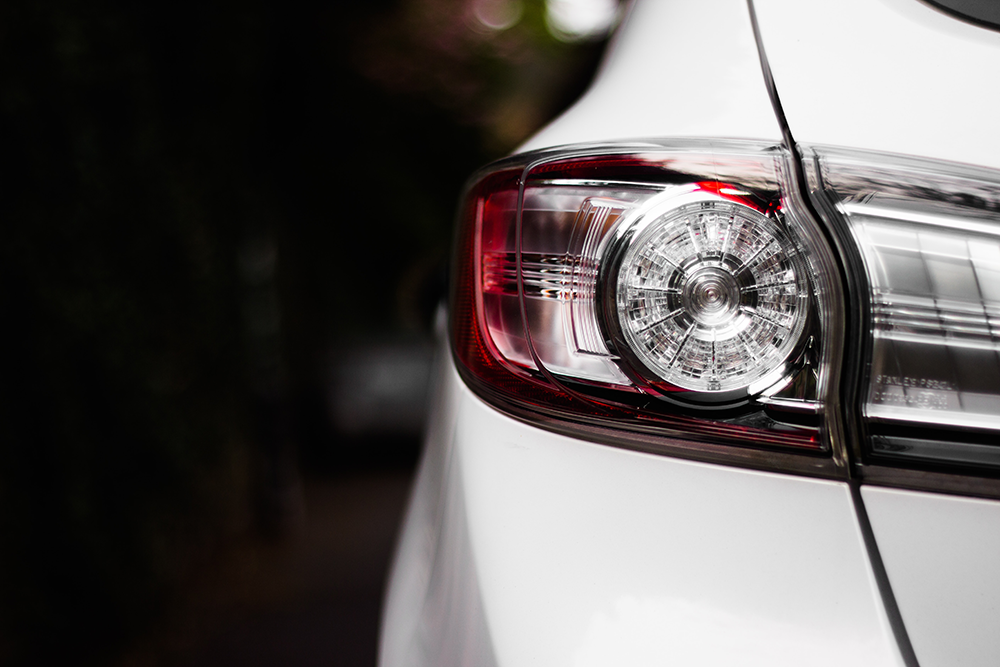
By Mike DuBose
Buying a new car is a big decision. After our homes, cars are usually the most costly thing that families own. With tens of thousands of dollars involved, it’s no wonder that buying a car can be a stressful process for most people. I recently purchased a new car myself and found a way to minimize this stress by allowing dealers to compete for my business over the internet. I’d like to share with you these unique buying secrets that saved me more than 12% off my new car’s Manufacturer’s Suggested Retail Price (MSRP).
The months of May to August are your prime months to buy a 2008 model because the 2009s will come out in September or October. The problem is that the longer you wait until the new 2009 models are released, the fewer 2008 choices you have to select from. But the closer it gets to the new models coming out, the more motivated dealers are to get rid of the 2008 models.
First, determine which brand of car you want to purchase (Ford, GMC, Toyota, etc.). Next, determine which model you want to buy. If you’re flexible, you may want to consider similar cars from different makers. Consult Consumer Reports (www.consumerreports.org) to determine the reliability and quality of the model (or models) you select. If you’re planning on using the same strategy I did (using the internet to find your car), you should still plan to take a test drive. I rented a car similar to the one I just bought for a week during my vacation to see if I really liked it. If you have several models of cars that you’re considering, Consumer Reports recommends that you test drive them all on the same day so that the comparison is easier.
Then, once you decide on which car you want, you should visit Kelly Blue Book (www.kbb.com), NADA (www.nadaguides.com) or Edmunds (www.Edmunds.com) to provide you with pricing details, such as what the dealer actually paid for your car from the manufacturer and what optional features cost. These websites also provide a wealth of information about other issues facing car buyers like depreciation, safety, and fuel efficiency.
There are three kinds of prices to take into consideration when bargaining for a car: the MSRP, the invoice price (the cost of what the dealer paid for the car “on the books”), and the real price (the price that the dealer actually paid—it’s often lower than the invoice price due to dealer “holdbacks” and incentives from the manufacturer). Normally, you will want to gauge your purchase around the invoice price, working up from this price as opposed to down from the MSRP.
To know roughly what your price will be with all of the accessory costs, go to the manufacturer’s website. Here you can build the car that you would like to purchase. As you are building the car, think about options that you require and then the other options that you would consider but could do without. Also, pick several colors that you like (you can see them online). You will see the different options and the MSRP for each option. Print this off once you finalize your selections so that you don’t lose it.
Once you build your car, most Internet sites will ask you if you would like a quote on the car you are considering. You will have to complete a form with your name, address, e-mail, telephone number, etc. Fill in only information that is required, but not your telephone number. Select as many dealers within driving distance as you can and ask that you only be contacted by e-mail.
Each dealer will have an Internet Sales Manager who will usually cut right to the chase and offer you the best deal, all from the comfort of home. I sent pricing inquiries to eight dealers and had them bidding against each other, each trying to beat the other’s price. I saw a great difference in how hard they worked (some wanted my business badly and responded promptly, while others took their time).
The best deal will be for a car already located on their lot, and you can usually view these on a dealership’s local web site. But if you want a very specific car, as I did, it may take longer to find. The dealers will use their dealership network to plug in your preferences to find that car you want. Sometimes they will come up with the exact model, but can also offer you more (or fewer) options if you’re flexible on the features you want. They usually search within 400 miles of their dealership and will pay another dealer a few hundred dollars to take the car you want off their hands. When you finalize the deal, be sure that the dealer dispatches a flatbed truck instead of hiring someone to drive the car to your local dealer, which would add hundreds of miles to your car’s odometer.
Most dealers I communicated with said they would match prices, so the key is to get several (maybe 8 to 10) dealers involved and push them to come up with the best price. Send them a list of several colors, required features, and optional features so they have a bigger selection to browse. Be careful, though, because some dealers did not carefully screen my requests and when I wanted a convertible, they missed that small word. When one dealer gives you a better price, throw it out there for the other dealers to fight over, but do so in individual e-mails to each dealer. It turned into a fun game after a while for me to watch them grind my price to the bone.
When you finalize your selection, I suggest that you buy from the dealer with the best price who is physically closest to you. While the dealers have to service the car regardless where you purchased it, you will have more clout if problems crop up that may not be covered from the warranty. I also think that dealerships will look after customers who made the purchase directly from them.
Edmunds recommends asking the dealership to fax you the invoice before you go in for the closing to avoid surprises. Scrutinize it carefully. Dealerships are very crafty (another word for sneaky!) in adding all sorts of fees (like closing costs – there are none in the car business. That is just another way of adding profit). They will also try to sell you all sorts of add-ons like fabric protector, extended warranties, credit life insurance, etc. I generally recommend that you turn them down since they are costly. Consumer Reports says that most extended warranties are not justified, and cars are no exception. If you plan to drive your car until it falls apart, then an extended warranty may be worthwhile. I bought a seven-year, 70,000 mile warranty since I will only drive my new car about 10,000 miles per year and don’t plan to sell it. Read the fine print since there are many exclusions and different levels of warranty.
Always negotiate the price of the car as if you will pay cash (even if you plan to finance). Then, if you have a trade-in, discuss that separately (and last) with the dealer once you have agreed on a cash price. The websites previously mentioned will also be helpful in determining how your trade-in is valued as well. However, to get the most money for your old car, it is usually best to sell it yourself. In Columbia, SC, placing ads in The State newspaper and the Carolina Trader is an excellent way to sell used cars.
Interest rates are also negotiable, so be sure to discuss these as well before you sign the dotted line. Dealers get a cut of the financing as well, so be aware that some may try to charge you a higher rate. But you don’t have to finance your car through the dealership, so shop around for the best car rates. Look carefully for any rebates or lowered financing rates that the dealer may offer. You can usually find information about rebates and low interest loans on the manufacturer’s website or through the Incentives and Rebates page on Edmunds.com. Above all, proof the final contract to make sure that no hidden or extra charges get added in! And be sure to obtain your free tank of gas (you may even be able to get them to throw in a free oil change).
Also, if you want a basically new car with low mileage, think about contacting Hertz, Avis, or other rental car companies. These companies sell their rental cars once they reach a certain number of miles, and the manufacturer’s warranty is usually still intact.
After much negotiating, Kevin Hubbard at Herndon Chevrolet in Lexington, SC finally got my business (and I got my Corvette)! If you want to contact him, Kevin can be reached at [email protected]. Good luck!



